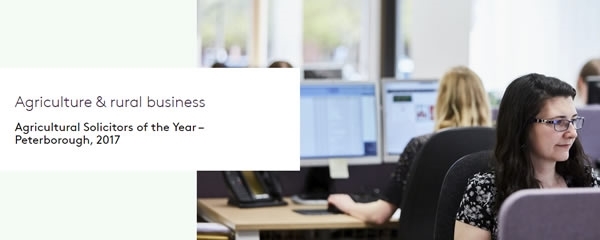
You may have seen in the farming press the story of a Warwickshire farmer who has been locked in a dispute with the Church over ownership of 16 hectares of land. It’s a useful reminder to check if your land is registered at the Land Registry and to get it registered if it is not.
Although Mr Tyacke’s family had owned the property since 1942, having rented it from the Diocese Board of Birmingham for many years prior to that, the ownership was never registered at the Land Registry. When the Diocese Board of Birmingham submitted an application for first registration of land that it owned, such application also included part of the land which was actually owned by Mr Tyacke’s family.
The Diocese Board of Birmingham’s application was based on a clearly mistaken belief that Mr Tyacke’s family still rented the land. The Land Registry completed the registration, granting a guaranteed record of ownership to the Diocese Board.
According to the media, Mr Tyacke was oblivious to the issue until land agents arrived to survey the property on behalf of those who claimed to be the ‘owners’. The mistake was only fully discovered some years later when he decided to apply to register his land. He had the physical deeds proving his family’s ownership, and upon production of those deeds to the Land Registry, the mistake in the registration was eventually rectified.
Land and property that has not changed hands for many years may still be ‘unregistered’, meaning that as the owners have never applied to register their land at the Land Registry; the Land Registry will have no formal public record of ownership. This is not uncommon, particularly as compulsory registration of land was not introduced in many parts of the country until the late 1980s; and even then, registration was not compulsory until an event triggering first registration (usually a sale, grant of a long lease or transfer on death) took place.
This is where issues can arise, if third parties attempt to claim possession (or simply trespass on land for a long time), the Land Registry has no way of contacting a potential true owner. The classic example is a neighbour moving their fence by a few feet each year!
Unregistered deeds are also often unsuitable for modern property transactions, with outdated descriptions and hand drawn, out of scale plans. This can slow down transactions and put some buyers off.
We encourage our clients, particularly those with large land holdings, to voluntarily register their land at the Land Registry. There is a reduced Land Registry fee for voluntary applications, but most importantly having a registered title can prevent potential issues in the future. Ownership can be clearly established, and can be searched for publicly online. It makes dealing with the land in the future much simpler too.
The team at Greenwoods GRM are very experienced in dealing with all types of Land Registry applications, including first registrations ranging from a strip of garden land to entire farms and estates. Please get in touch to see how we can help you.
Grow your business with the GWCT
A GWCT Trade Membership entitles you to a FREE guest blog spot which will be promoted directly to over 30,000 GWCT members and non-members alike.
Find out more >